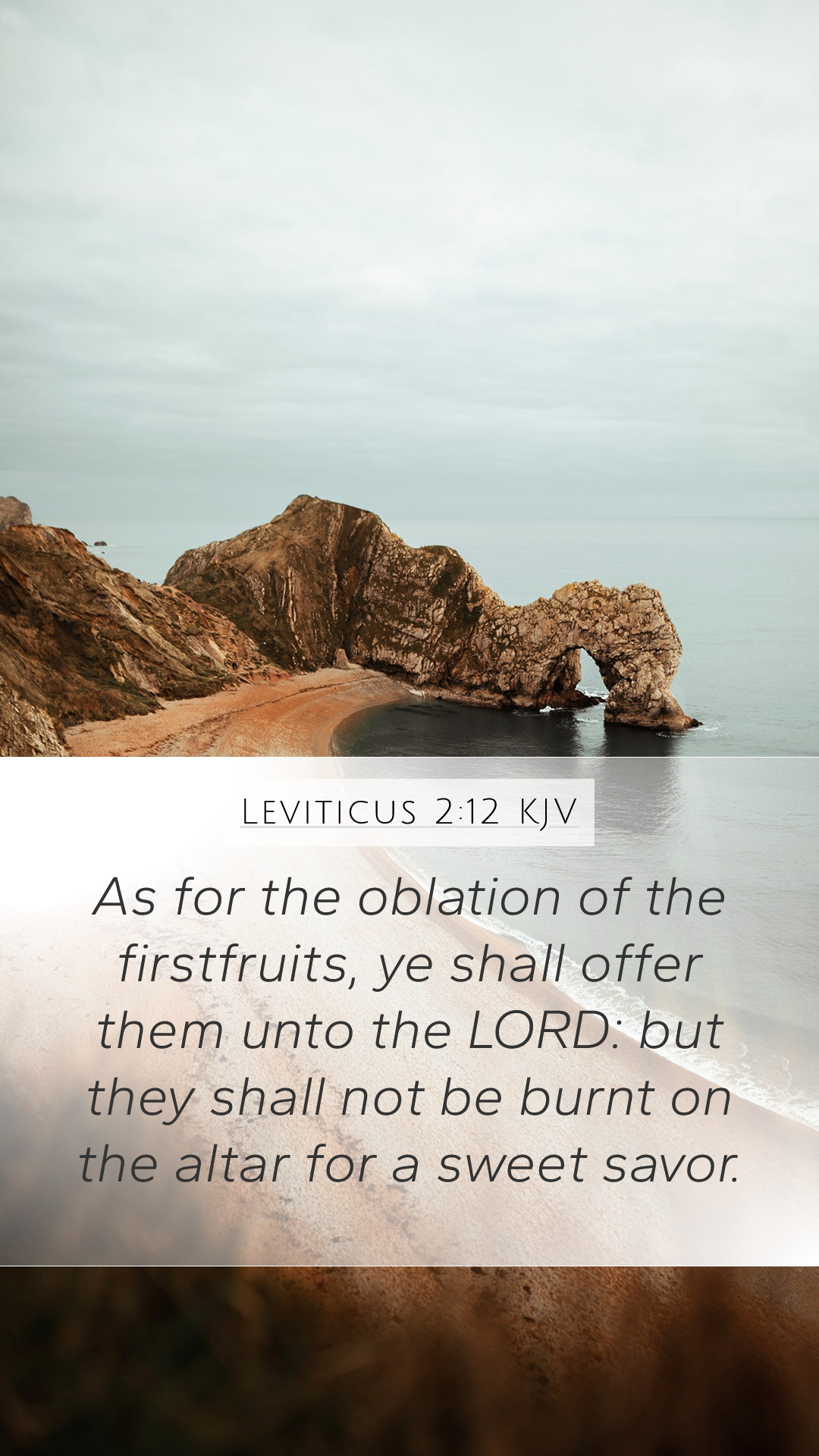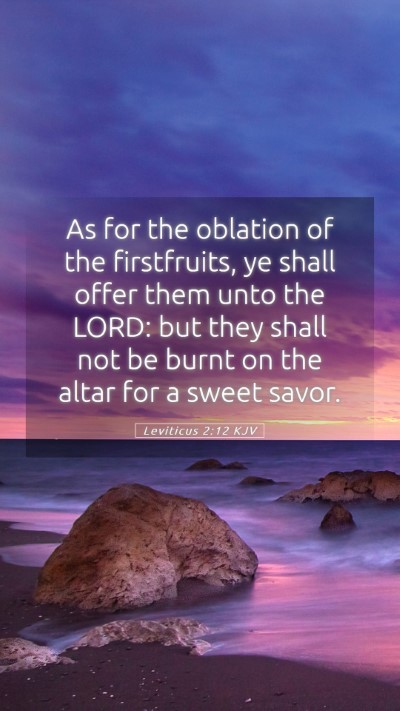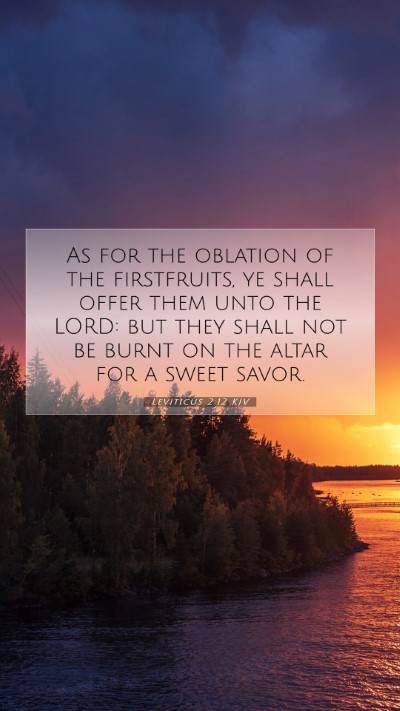Understanding Leviticus 2:12
Bible Verse: Leviticus 2:12 - "As for the oblation of the firstfruits, you shall offer them to the LORD, but they shall not be offered on the altar for a sweet aroma."
Overview of Leviticus 2:12
Leviticus 2:12 addresses the offerings of firstfruits, highlighting the specific regulations concerning grain offerings. The verse underscores the significance of dedicating the initial yield of one's harvest to God, symbolizing gratitude and acknowledgment of God's provision.
Meaning and Interpretation
This passage, when analyzed through various public domain commentaries, reveals deeper theological insights. Here are insights derived from Matthew Henry, Albert Barnes, and Adam Clarke:
-
Insights from Matthew Henry
Matthew Henry emphasizes that the command to offer firstfruits symbolizes a recognition of God’s sovereignty over the harvest. This offering is not meant for the altar but signifies love, thankfulness, and acknowledgment of God’s blessings. Henry notes that the act of offering is more about the heart's attitude than the physical act itself, aligning with the overall principle of offering our best to God.
-
Insights from Albert Barnes
Albert Barnes elaborates on the significance of the firstfruits. He suggests that the exemption of these offerings from being burned on the altar indicates a distinction between types of offerings. Barnes highlights that the firstfruits were a representation of the whole, and offering them shows dependence on God's continued provision. This is a reminder for believers of the importance of presenting the first and best to God, which can also apply to our time, talents, and treasures today.
-
Insights from Adam Clarke
Adam Clarke notes the cultural context in which these offerings were made. He describes how the practice of offering firstfruits was common in ancient Israel and served as a way to dedicate the bounty of the harvest to God. Clarke emphasizes that spiritual worship and thanking God should remain a priority, which correlates with the physical act of devotion through offerings. Furthermore, he insists the importance lies in recognizing God’s role as the provider and sustainer.
Application of the Verse in Modern Context
The understanding of Leviticus 2:12 can be applied in various aspects of a believer's life. Here are a few applications:
- Dedication: Just as Israelites dedicated their firstfruits, believers are reminded to dedicate their lives and resources to God.
- Gratitude: Recognizing God's blessings and expressing thanks through worship, much like the offerings in the Old Testament.
- Prioritization: Prioritizing God in everyday life, including making Him first in one's business, finances, and time.
Bible Cross References
- Exodus 23:19 - "The best of the firstfruits of your ground you shall bring into the house of the LORD your God." This emphasizes the importance of offering to God.
- Deuteronomy 26:2 - "You shall take some of the first of all the fruit of the ground ... and go to the place that the LORD your God will choose." This passage highlights the tradition of firstfruits.
- Proverbs 3:9 - "Honor the LORD with your substance and with the firstfruits of all your increase." This instructs believers to honor God with their wealth.
Conclusion
Leviticus 2:12 serves as an important verse in understanding the nature of offerings in the Old Testament, symbolizing gratitude, acknowledgment of God’s provision, and the heart's attitude toward worship. The insights from various commentaries reinforce the significance of spiritually dedicating our first and best to God in modern times, making this an enduring principle in both historical and contemporary contexts.


